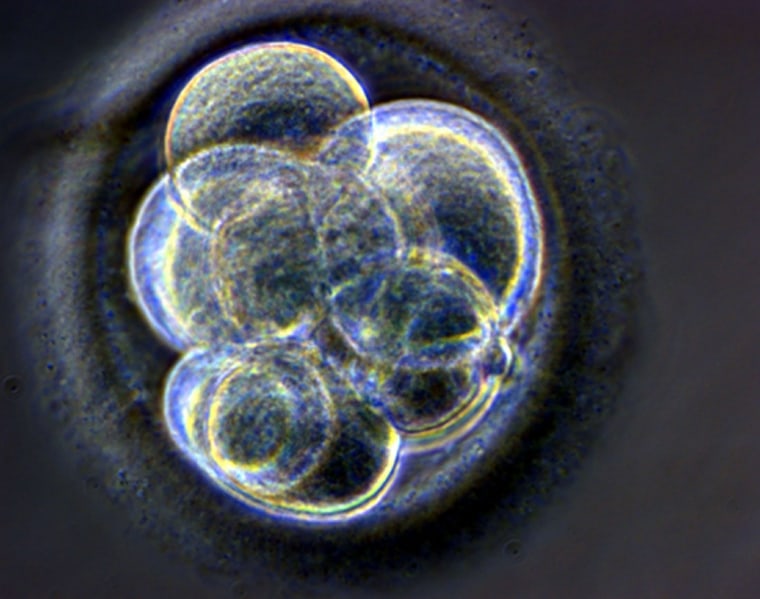Chinese scientists have caused an uproar by trying to permanently edit the DNA of human embryos — created genetic changes that could be passed along from generation to generation.
Their attempt didn’t work very well, but the report, published in a small, online journal called Protein & Cell, has worried experts who have been watching out for such experiments.
The motivation is to cure disease. In this experiment, the researchers were trying to correct defects in a gene called HBB that can cause a deadly blood disorder called beta-thalassemia.
Gene therapy in adults and children is still experimental; the idea is to fix faulty disease-causing genes. But done in a very early embryo, the repair, called germline editing, would be permanent. It could also be passed along to future generations.
That would be a good thing for curing disease, but if something went wrong, any mistakes would also be permanent. Gene therapy has been known to cause leukemia, for instance.
And it raises the specter of eugenics — making designer babies, or trying to “improve” the human race.
"Their study should be a stern warning to any practitioner who thinks the technology is ready for testing to eradicate disease genes."
“Human germline modification is widely considered unethical for both safety and social reasons,” the Center for Genetics and Society said in a statement.
“Using germline modification techniques to create a human being is prohibited by more than 40 countries and several international human rights treaties.”
Canquan Zhou and Junjiu Huang of the Guangdong Province Key Laboratory of Reproductive Medicine, at China’s Sun Yat-sen University used human embryos that would not have survived anyway because they were fertilized by two sperm. And they said their technique was very inefficient. It also caused “untoward mutations,” they wrote.
"Their study should be a stern warning to any practitioner who thinks the technology is ready for testing to eradicate disease genes,” Dr. George Daley, a stem cell expert at Harvard Medical School, told the science journal Nature.
“No researcher has the moral warrant to flout the globally widespread policy agreement against altering the human germline,” Marcy Darnovsky, executive director of the Center for Genetics and Society, said in a statement.
“Creating genetically modified human beings could easily lead to new forms of inequality, discrimination and societal conflict,” she added.
“We can no longer consider this a far-off prospect to be dealt with in the future. We need to act immediately to strengthen the global policy agreements that put human germline modification off limits.”

